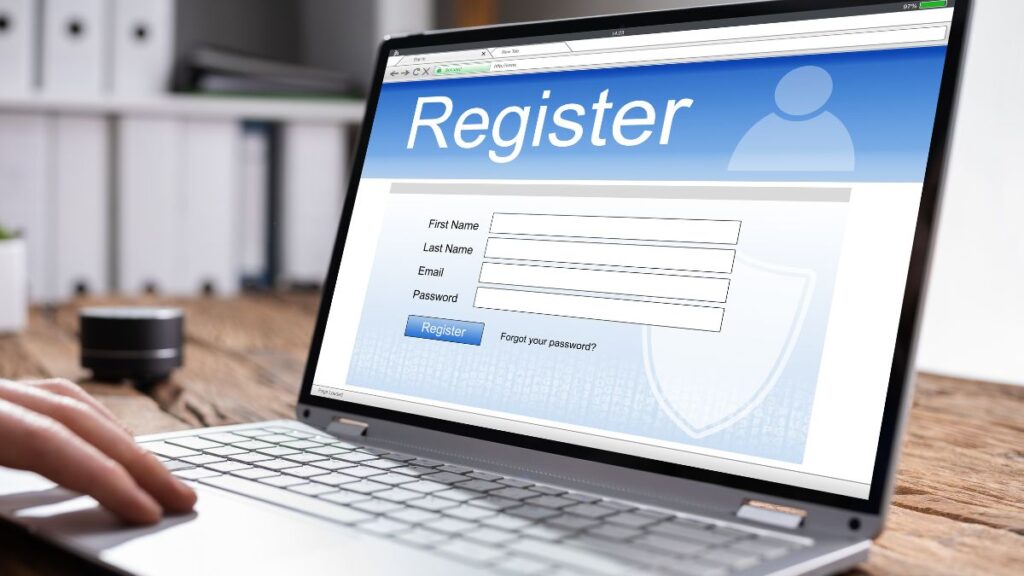Before you start scrubbing toilets and raking in the cash, there’s one crucial step: registering your cleaning business in Kenya.
Don’t worry, it’s not as daunting as it sounds.
In this guide, I’m going to break down the entire process, step-by-step, in a way that even a chimp could understand.
Plus, I’ll throw in some killer tips to help you not just survive, but thrive in the Kenyan cleaning scene.
Why Register Your Cleaning Business in Kenya?
Before we dive into the how-to, let’s talk about the why. Why bother with all this legal mumbo jumbo? Here’s the deal:
- Credibility: A registered business screams legitimacy. Clients are more likely to trust a company that’s official.
- Access to Finance: Need a loan to expand? Banks love dealing with registered businesses.
- Legal Protection: If things go south (lawsuits, disputes, etc.), you’ll be glad you have that legal shield.
- Tax Benefits: Believe it or not, there are tax advantages to being a registered business.
Bottom line: Registering your cleaning business is like laying the foundation for a skyscraper. You can’t build anything worthwhile without it.
How to Register a Cleaning Business in Kenya
Step 1: Choose Your Business Structure
First things first, you need to decide what kind of legal entity you want to be.
In Kenya, the most common options for cleaning businesses are:
- Sole Proprietorship: You’re the boss, the only owner. Simple to set up, but you’re personally liable for any business debts.
- Partnership: Two or more people join forces. Shared responsibility, but also potential for disagreements.
- Limited Company: Your business is a separate legal entity. More complex to set up, but offers greater liability protection.
Which one’s right for you? Depends on your specific circumstances. If you’re starting small and solo, a sole proprietorship might be enough.
But if you’re aiming big or have partners, a limited company might be the better choice.
Pro Tip: Not sure which structure to choose? Talk to a lawyer or business advisor. They can help you weigh the pros and cons and make the best decision for your situation.
Step 2: Name Search and Reservation
You’ve got the perfect name for your cleaning empire.
But hold your horses! Before you print those business cards, you need to make sure someone else hasn’t already snagged it.
Head over to the eCitizen portal (more on that later) and conduct a name search.
Make sure the name is available and follows the rules (no offensive or misleading names, for example).
To search and reserve a business name on the eCitizen portal in Kenya, follow these structured steps:
1. Create an eCitizen Account
Visit the eCitizen portal and sign up if you do not have an account.
Provide your full names, ID number, email address, and phone number.
Verify your email to activate your account.
2. Log into the eCitizen Portal
Enter your username/email and password to log in.
3. Access Business Registration Services
On the dashboard, select the Business Registration Service tab.
Click on the option for Name Search or Make Application.
4. Conduct a Name Search
Propose 3 to 5 unique business names in order of preference.
Fill in a short description of your business entity.
Review your application before submitting it.
Pay the search fee (approximately Ksh. 150) via the provided payment methods.
Wait for confirmation of your name search, which typically takes about one day.
5. Reserve Your Business Name
Upon successful name search results, proceed to fill out the online application form for business name registration.
Ensure that your proposed name complies with legal requirements (e.g., not identical to existing names).
6. Complete Registration Forms
Provide necessary details including:
- Description of business activities
- Full names of proprietors
- Postal and physical addresses
- Copies of ID/Passport and KRA PIN certificates of proprietors
- Passport-sized photographs of proprietors
Submit the completed forms along with any required documents.
7. Wait for Approval
After submission, wait for approval from the Registrar of Companies, which usually takes about 3-5 days.
8. Receive Your Business Name Certificate
Once approved, download your certificate of registration from the eCitizen portal. This certificate serves as proof that your business is officially registered under the chosen name.
Some Notes
Ensure that names are unique and comply with regulations outlined in the Registration of Business Names Act and Companies Act.
The reserved name is valid for a minimum of 30 days, with possible extensions under certain conditions.
Once you’ve found a winner, reserve it.
This prevents anyone else from snatching it while you’re completing the registration process.
Pro Tip: Come up with a few backup names, just in case your first choice is taken.
Step 3: Register Your Business on eCitizen
eCitizen is your one-stop shop for government services in Kenya, including business registration. Here’s the rundown:
- Create an eCitizen account: If you don’t have one already, head to the eCitizen website and sign up.
- Log in and select “Business Registration”: You’ll find it under the “Attorney General” section.
- Fill out the application form: This includes details about your business, its structure, and your personal information.
- Pay the registration fee: The fee varies depending on your business structure.
- Submit your application: Once you’ve paid, submit your application and wait for approval.
Pro Tip: Have all your documents ready before you start the application process. This includes your ID, PIN certificate, and any partnership agreements if applicable.
Step 4: Obtain the Necessary Licenses and Permits
You’re almost there! But before you start cleaning, you need to make sure you’re operating legally. This means obtaining the necessary licenses and permits.
The specific requirements vary depending on your location and the type of cleaning services you offer. But some common ones include:
- County Council Business Permit: This allows you to operate your business within your county.
- Fire Safety Certificate: Ensures your business premises comply with fire safety regulations.
- Public Health License: Especially important if you’re offering services like fumigation or pest control.
Pro Tip: Contact your local county government to find out the exact licensing requirements for your cleaning business.
Step 5: Open a Business Bank Account
Mixing your personal and business finances is a recipe for disaster. Open a separate bank account for your cleaning business to keep things organized and professional.
This will also make it easier to track your income and expenses, which is crucial for tax purposes.
Pro Tip: Shop around for the best bank account for your business needs. Consider factors like transaction fees, minimum balance requirements, and online banking features.
Breaking Down the Costs of Registering Your Cleaning Business in Kenya
Alright, let’s talk money.
You know, the green stuff that makes the world go round.
Registering your cleaning business in Kenya does come with some costs.
But don’t sweat it, I’m going to break them down for you so there are no surprises.
Knowing the costs upfront helps you budget properly and avoid getting blindsided. Remember, every shilling counts when you’re starting.
1. Name Search and Reservation
Before you can even think about registering, you need to make sure your killer business name isn’t already taken. This involves a name search and reservation fee.
- Name Search: KES 150
- Name Reservation: KES 1,000
Total: KES 1,150
Not bad, right?
A small price to pay for securing your brand identity.
2. Business Registration Fee
This is the big one. The cost of actually registering your business with the government. The fee varies depending on your chosen business structure:
- Sole Proprietorship: KES 1,000
- Partnership: KES 1,500
- Private Limited Company: KES 10,650
Pro Tip: Choosing the right business structure can impact your registration costs. If you’re starting small, a sole proprietorship is the most budget-friendly option.
3. Licenses and Permits
Here’s where things can get a bit tricky. The cost of licenses and permits depends on several factors:
- Your County: Each county has its own fee structure.
- Type of Cleaning Services: Specialized services (like fumigation) might require additional permits.
- Business Premises: The size and location of your premises can affect the cost of permits.
Some common licenses and permits include:
- County Council Single Business Permit: Costs vary by county.
- Fire Safety Certificate: KES 3,000 – KES 10,000 (depending on the size of your premises).
- Public Health License: KES 5,000 – KES 20,000 (depending on the type of cleaning services).
Pro Tip: Contact your local county government for a detailed breakdown of the licensing fees in your area. Don’t get caught off guard!
4. Miscellaneous Expenses
Don’t forget about the smaller costs that can add up:
- Printing: Business cards, brochures, etc.
- Transportation: Traveling to government offices.
- Professional Fees: If you’re seeking legal or accounting advice.
Bottom line: Registering your cleaning business in Kenya will likely cost you anywhere between KES 5,000 to KES 20,000, depending on various factors.
But remember, this is an investment in your future. A registered and licensed business opens doors to more clients, financing opportunities, and legal protection.
So, crunch the numbers, get your finances in order, and take that first step towards building your cleaning empire. The sooner you register, the sooner you can start raking in the cash!
How To Dominate the Kenyan Cleaning Market
Congratulations!
You’ve officially registered your cleaning business. But the journey doesn’t end there. Here are some extra tips to help you rise above the competition and build a cleaning empire:
- Specialize: Don’t try to be everything to everyone. Focus on a specific niche (e.g., residential cleaning, commercial cleaning, post-construction cleaning) to stand out.
- Invest in Training: Your employees are your biggest asset. Invest in training to ensure they provide top-notch service.
- Build a Strong Online Presence: In today’s digital world, you need a website and social media presence. Make it easy for customers to find you and book your services.
- Offer Excellent Customer Service: Word-of-mouth is powerful. Go above and beyond to keep your clients happy, and they’ll become your best marketers.
- Don’t Underestimate the Power of Referrals: Offer incentives to existing clients for referring new business.
Remember: Building a successful cleaning business takes time and effort. But with hard work, dedication, and a little bit of hustle, you can achieve your dreams.
Read also:


